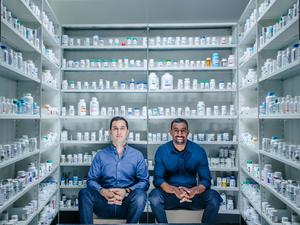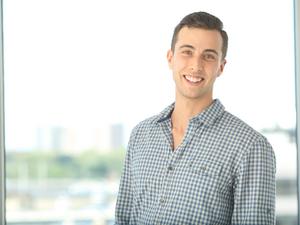
Two executives at San Francisco-based Done Global Inc. were taken into federal custody Thursday, accused of fraudulent medical claims through its service that prescribed ADHD medication via telemedicine.
In a press release, the Justice Department said it arrested Ruthia He, the founder and CEO of Done Global Inc. and David Brody, the clinical president of Done Health P.C., its prescription subsidiary. Prosecutors said the executives are each facing a maximum of 20 years in prison over charges related to an alleged conspiracy to distribute controlled substances.
“As alleged, these defendants exploited the Covid-19 pandemic to develop and carry out a $100 million scheme to defraud taxpayers and provide easy access to Adderall and other stimulants for no legitimate medical purpose,” said Attorney General Merrick B. Garland in the press release. “Those seeking to profit from addiction by illegally distributing controlled substances over the internet should know that they cannot hide their crimes and that the Justice Department will hold them accountable.”
Done was among a number of Bay Area startups that cropped up in the past few years offering to prescribe medication for ADHD like Adderall that is considered a controlled substance by the government. The Drug Enforcement Agency relaxed rules around prescribing these drugs due to the pandemic, allowing for doctors to diagnose ADHD and prescribe stimulant medication online.
The Justice Department claims that Done earned $100 million in revenue through its subscription service that distributed 40 million pills. It claims He and Brody, along with other Done employees, conspired to overprescribe pills for nonmedical purposes, spending millions on social media ads to attract customers.
I wrote about this trend in 2022, when social media sites like TikTok and Instagram were blanketed by advertisements encouraging people who had trouble focusing or were feeling depressed to sign up for telemedicine services that prescribed controlled substances, replete with progressive language about destigmatizing mental health.
Some companies like Cerebral Inc. backed off prescribing such drugs following media exposes and a federal probe.
Federal prosecutors went on to allege that He and Brody instructed doctors and nurse practitioners on its service to prescribe Adderall to patients who did not qualify and to keep initial consultations under 30 minutes. The company allegedly discouraged follow-up care to patients by adding an "autorefill" feature that sent an automated message to the prescriber asking for a refill, and refusing to pay them for time spent on care after the initial consultation.
"Done Global strongly disagrees with the criminal charges filed last week against our founder, Ruthia He, and Dr. David Brody, which are based on events that principally occurred between February 2020 and January 2023," said a Done spokesperson. "Since our founding, Done Global has worked to make mental health care accessible for tens of thousands of Americans trapped in a spiraling national crisis. Done Global will continue to operate – and do everything in our power to ensure that tens of thousands of Americans that rely on us do not lose access to their mental health care. At the same time, we will continue to support our clinicians as they exercise independent clinical judgment, practice evidence-based medicine, and provide best-in-class health care."







